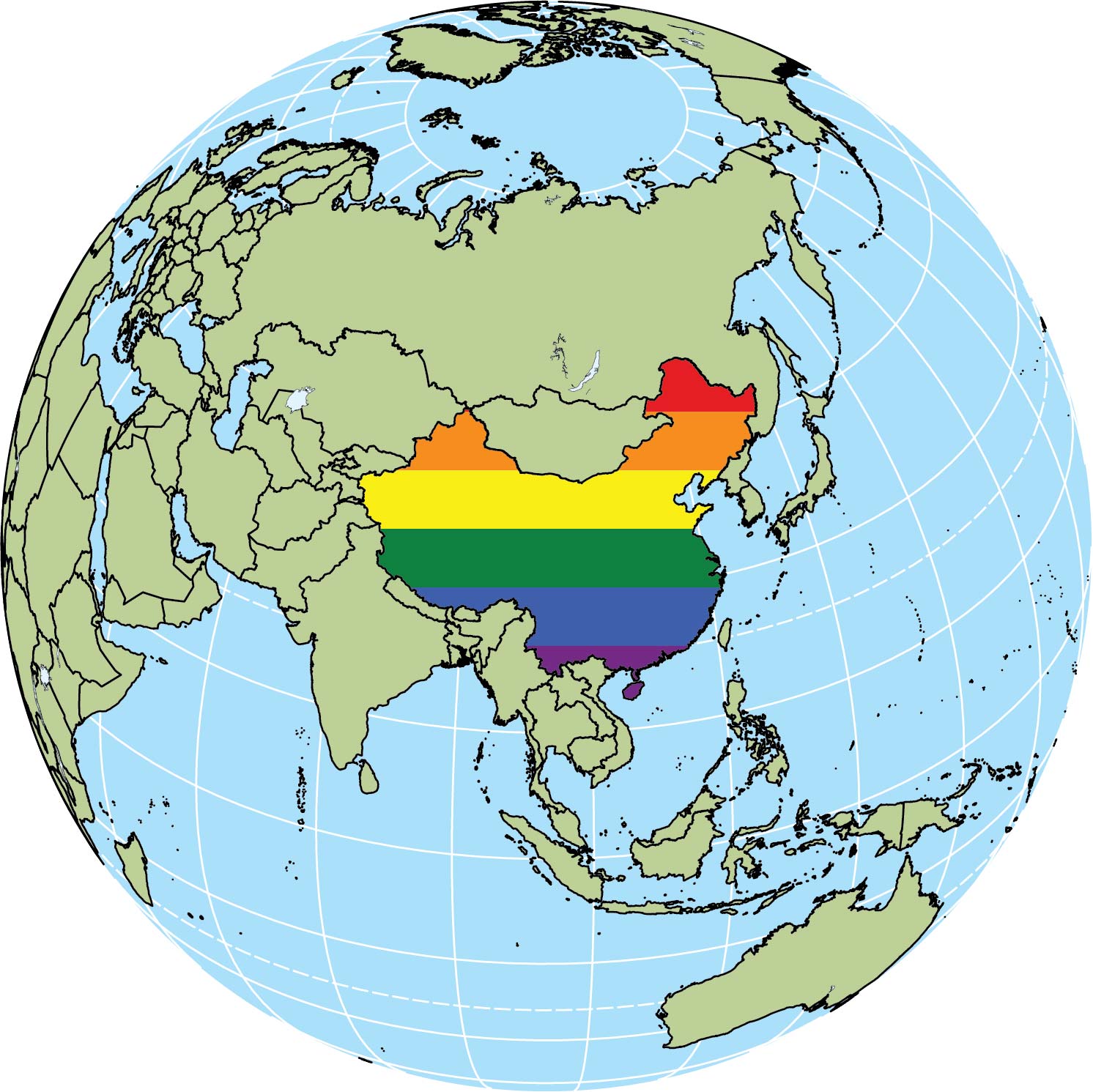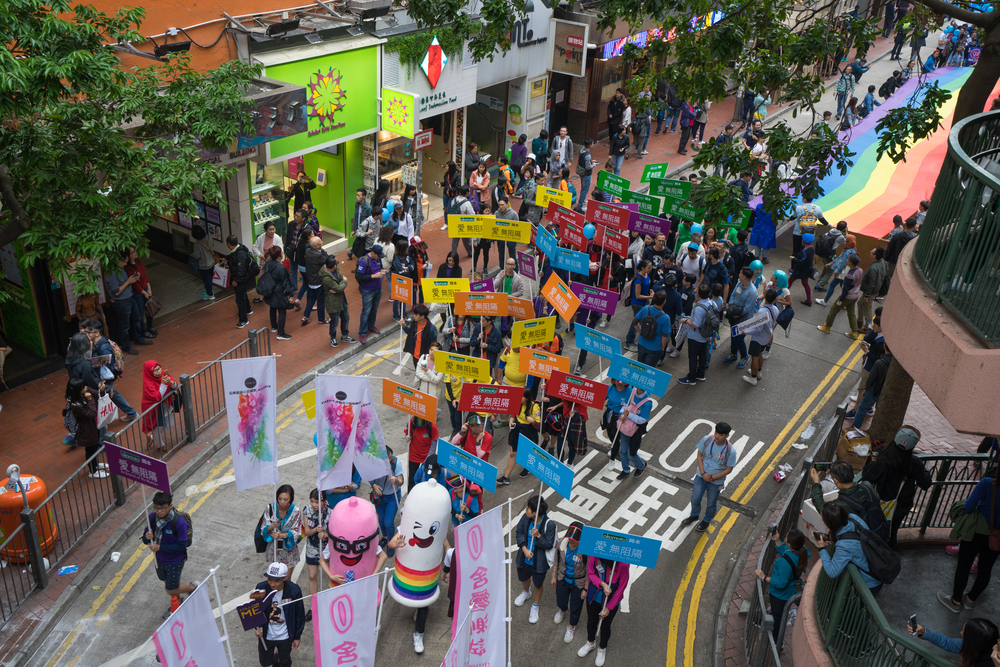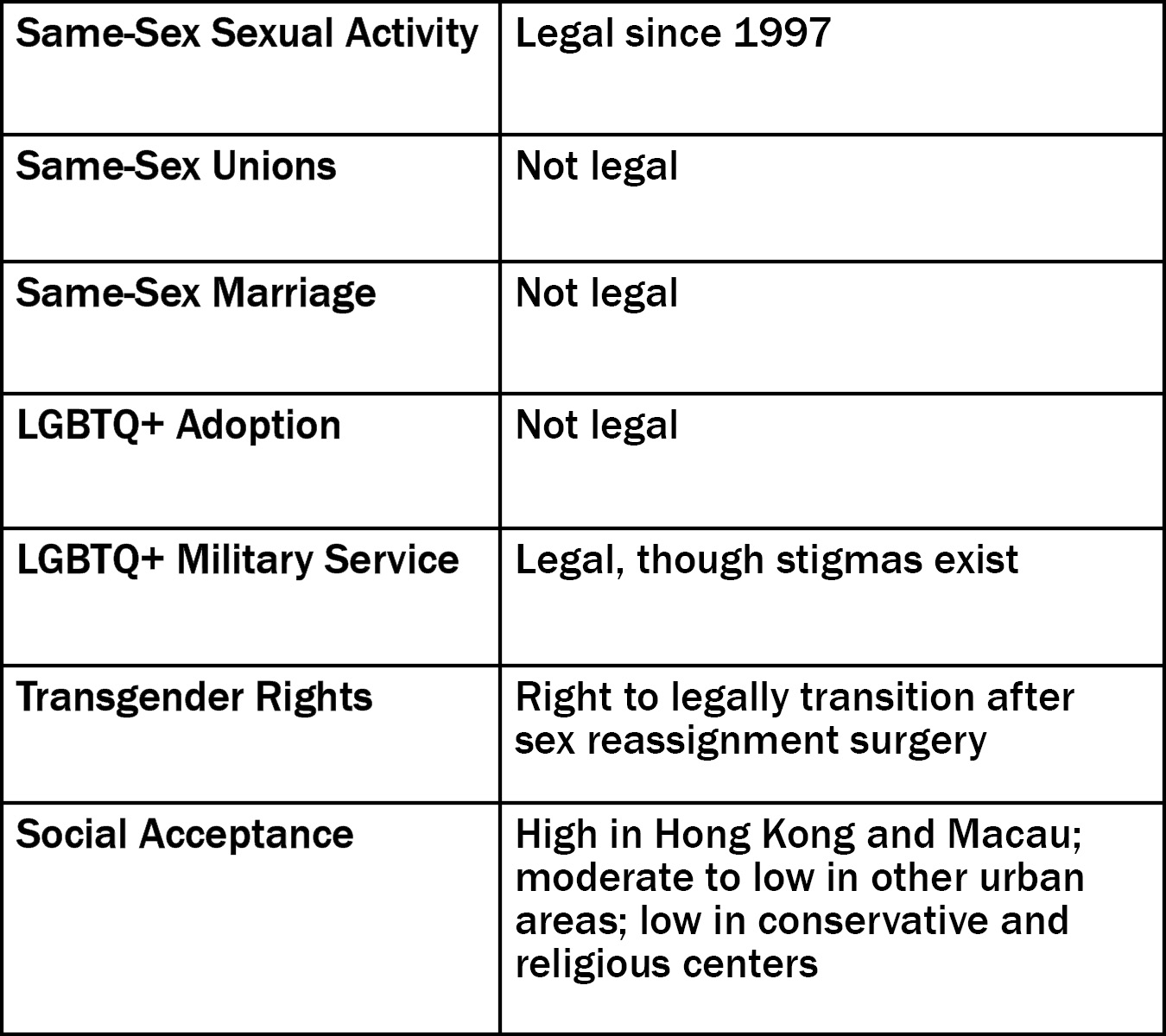LGBTQ: Legal and Cultural Status
Over the past few years, the LGBTQ+ community has been the beneficiary of a marked shift in global public opinion, with movement towards greater cultural acceptance and enhanced legal status. Nevertheless, views are not uniform across all countries.
In the most progressive countries, members of the LGBTQ+ community enjoy cultural acceptance, social freedoms, and full legal status. In the most restrictive countries, identifying as LGBTQ+ or engaging in same-sex acts is punishable by jail or death.
When preparing to travel abroad as a tourist or for business, members of the LGBTQ+ community should thoroughly research country-specific legal, cultural, and security issues prior to departure.
Understanding where a destination country falls on the spectrum of acceptance allows LGBTQ+ individuals to decide whether to travel to a given destination and to understand how to conduct themselves safely when they arrive.
Legal Facts
Same-Sex Sexual Activity
In 1979, China enshrined the concept of “hooliganism” in official criminal law. “Hooliganism,” which included same-sex sexual activity and other behaviors considered to be immoral, was punishable by reformative labor and lengthy prison sentences. The crime was removed from Criminal Law in 1997 and same-sex sexual activity has been legal since.
Same-Sex Unions
While same-sex unions are not legally available in China, there is a system called “legal guardianship” which creates a similar circumstance. In 2017, China amended national law to allow adults to select their own guardians. By selecting their partner as their legal guardian, LGBTQ+ couples gain privileges including the ability to make medical decisions, plan funerals, and maintain the interests of their partner. These “guardianship agreements” are the closest legal equivalent to same-sex unions available in China.
Same-Sex Marriage
Same-sex marriage is not legal in China. Same-sex marriages do take place in China, though the acts are ceremonial and have no legal power.
Adoption
Chinese Law explicitly states that only heterosexual married couples can become adoptive parents. The country extends this restriction to foreign couples hoping to adopt children from China. Same-sex couples legally married in other countries are not allowed to adopt children from China. Recently, China opened the door to allow foreign single women to adopt children, but they must apply for and receive a certificate recognizing them as officially single.
Military Service
There are no laws which ban LGBTQ+ individuals from military service in China. However, there are social pressures within the Chinese military which make it difficult for LGBTQ+ service members to openly serve. LGBTQ+ individuals are often subject to discrimination within the Chinese military, and mental health laws and regulations within the military are often used against these individuals.
Gender Identity Laws
Current Chinese law states that transgender individuals do have a legal avenue to change their legal gender. However, they must undergo gender reassignment surgery and fully transition genders before being eligible to legally change their gender. Gender reassignment surgery is only available to individuals over the age of 20.
Anti-Discrimination Laws
There are no anti-discrimination laws in China written explicitly to protect LGBTQ+ individuals. Chinese labor law protects discrimination on the basis of gender, but sexual orientation is not included in the law’s language. Article 33 of the Constitution of the People’s Republic of China does guarantee equality for all citizens under law but makes no specific mention of LGBTQ+ individuals/.
Cultural Considerations
Public Opinion
Recent polling suggests that fewer than half of China’s citizens support same-sex marriage. More than a fifth oppose it. This figure does vary regionally. In Hong Kong, for example, more than 75 percent of the city’s population is believed to support same-sex marriage. There is evidence that the vast majority of LGBTQ+ individuals throughout China do not discuss their gender identity or sexual orientation with family or friends. This is believed to be mostly because of pervasive social stigmas against LGBTQ+ individuals.
Public Displays of Affection
China has recently experienced a shift when it comes to public displays of affection. It used to be the case that couples engaging in any sort of physical contact, including holding hands, was viewed as taboo. While many couples from older generations continue to keep their hands to themselves in public, younger generations are far more cuddly. In China there is a pride associated with being a part of a couple. In recent years engaging in light public displays of affection—including holding hands and snuggling—has become popular among younger generations trying to advertise their relationship status. However, public displays of affection are very uncommon for LGBTQ+ couples in China.
Opinions on Cohabitation
LGBTQ+ couples in China may face strong opinions against cohabitation. Being a part of an LGBTQ+ couple is still very taboo in China, and there is a lot of public sentiment—especially from older generations—against public expressions of non-heterosexual orientations.
Consistency of Opinions
Opinions differ strongly throughout China. While there are strong anti-LGBTQ+ attitudes present across mainland China, cities like Hong Kong and Macau have much more accepting populations. Rural areas of the country and religious centers are far less likely to be accepting of LGBTQ+ individuals.
Article written for World Trade Press by Taylor Holloran.
Copyright © 1993—2025 World Trade Press. All rights reserved.

 China
China 


